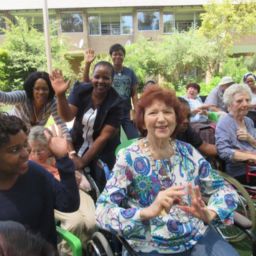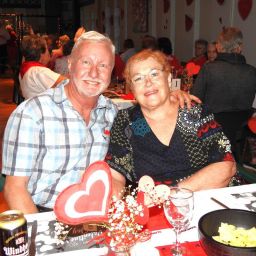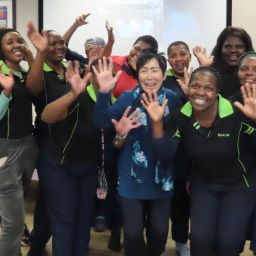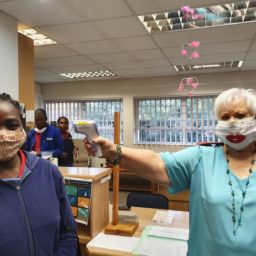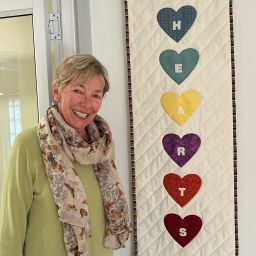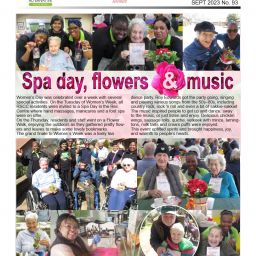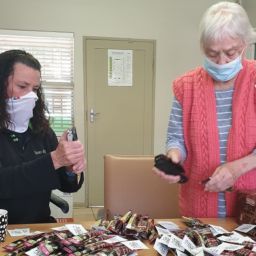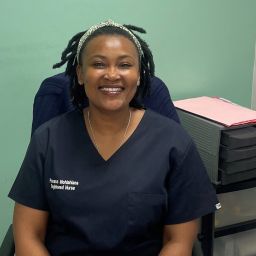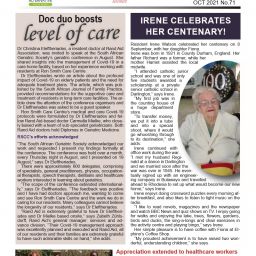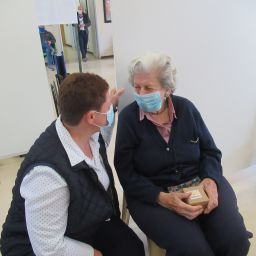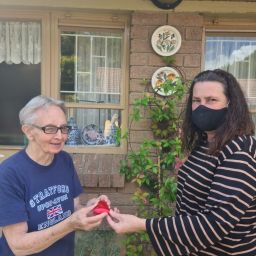Thornhill Manor made significant contributions to dementia awareness and supporting people affected by the disease this Alzheimer’s Awareness Month.
Several awareness and fundraising events culminated in a gathering of around 70 people on September 18 at the Rand Aid-run retirement village. Among them were 20 people from nearby Thembalami, a Rand Aid care centre that has a wing dedicated to people living with dementia.
Traditionally, Thornhill Manor holds an Alzheimer’s awareness walk, but this year organised chair exercises instead. Instructor Cheryl Emmett put the participants through their paces, donating her time and expertise.
“With proper safety precautions, a person with Alzheimer’s can participate in chair exercise classes,” says Karen Griessel, Thornhill’s social worker. “Regular exercise improves health. It helps lower blood pressure and improve blood sugar and fitness levels while decreasing anxiety.
“These benefits are significant for individuals with Alzheimer’s disease, who often have comorbid chronic diseases and mood swings,” she says.
“Around 7% of South Africa’s older population has dementia but according to Prof Marguerite Schneider of the University of Cape Town, many cases go unrecorded because the disease is not accepted or recorded in many cultures.
“The duration of illness can be as short as six months or as long as 20 years, with an average of 12 years,” says Karen.
The Alzheimer’s Association states that there are 10 warning signs and symptoms:
- Memory loss that disrupts daily life.
- Challenges in planning or solving problems.
- Difficulty completing familiar tasks.
- Confusion with time or space.
- Trouble understanding visual images and spatial relationships.
- New problems with words in speaking or writing.
- Misplacing things or losing the ability to retrace steps.
- Decreased or poor judgement.
- Withdrawal from work or social activities.
- Changes in mood and personality.
“If you notice any of these symptoms, do not ignore them,” says Karen. “Schedule an appointment with your doctor. Once cognitive impairment is identified, a patient may then be referred for tests. Identifying Alzheimer’s normally requires a brain scan and perhaps a lumbar puncture.”
Degenerative conditions like Alzheimer’s get worse over time and the progress of the condition is usually irreversible though people living with Alzheimer’s can lead active, useful, and fulfilling lives a lot longer than many realise – provided society makes it possible for them by showing compassion and understanding.
In her speech, Karen thanked Vicky Keenan, a Thornhill resident and qualified occupational therapist, and her ‘wing-woman’ Val Tyrteous for facilitating the fundraising and awareness events leading up to the day.
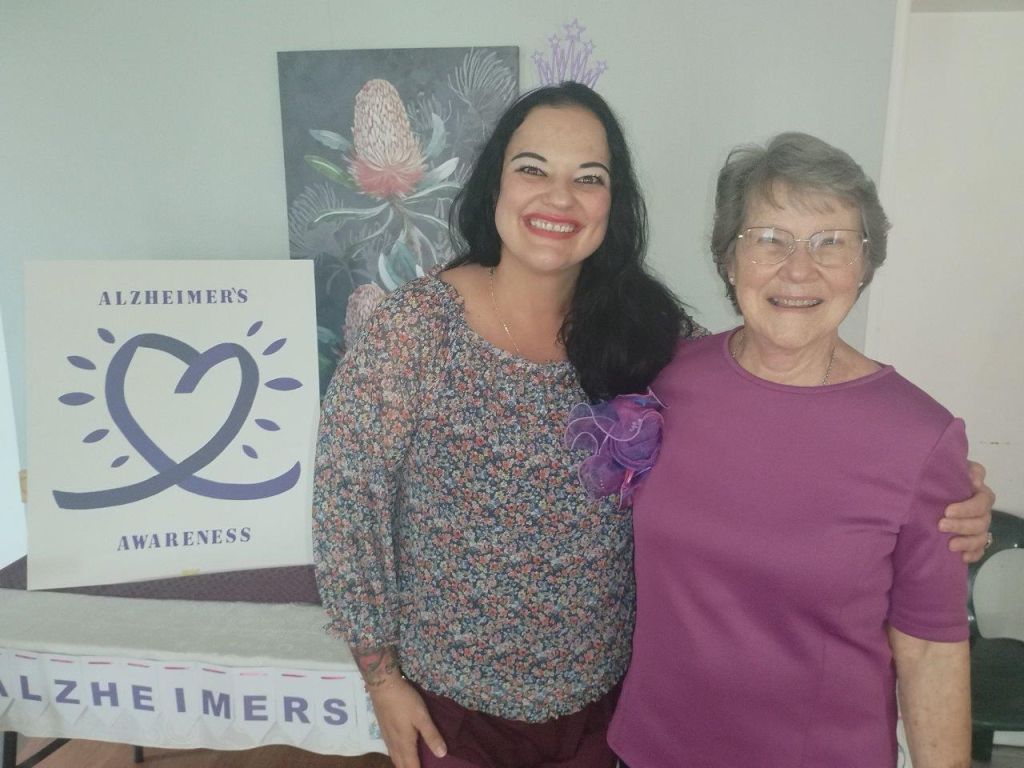
Thornhill Manor social worker Karen Griessel and resident Vicky Keenan.
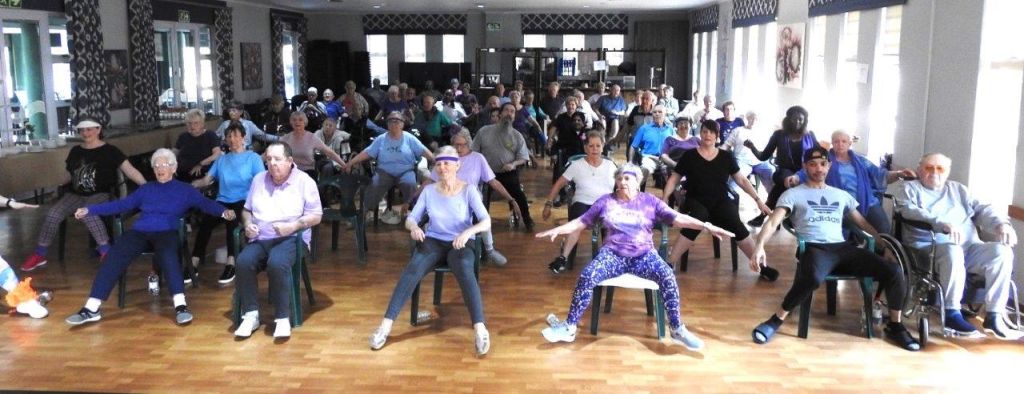
The chair exercise session of progress.

Karen Griessel (Thornhill Manor social worker), Cheryl Emmett (chair exercise instructor), and Jackie Scott (Thornhill deputy manager).

Dale Cherington and Loretta Allasio of Thornhill Manor with Angela Cherington.


